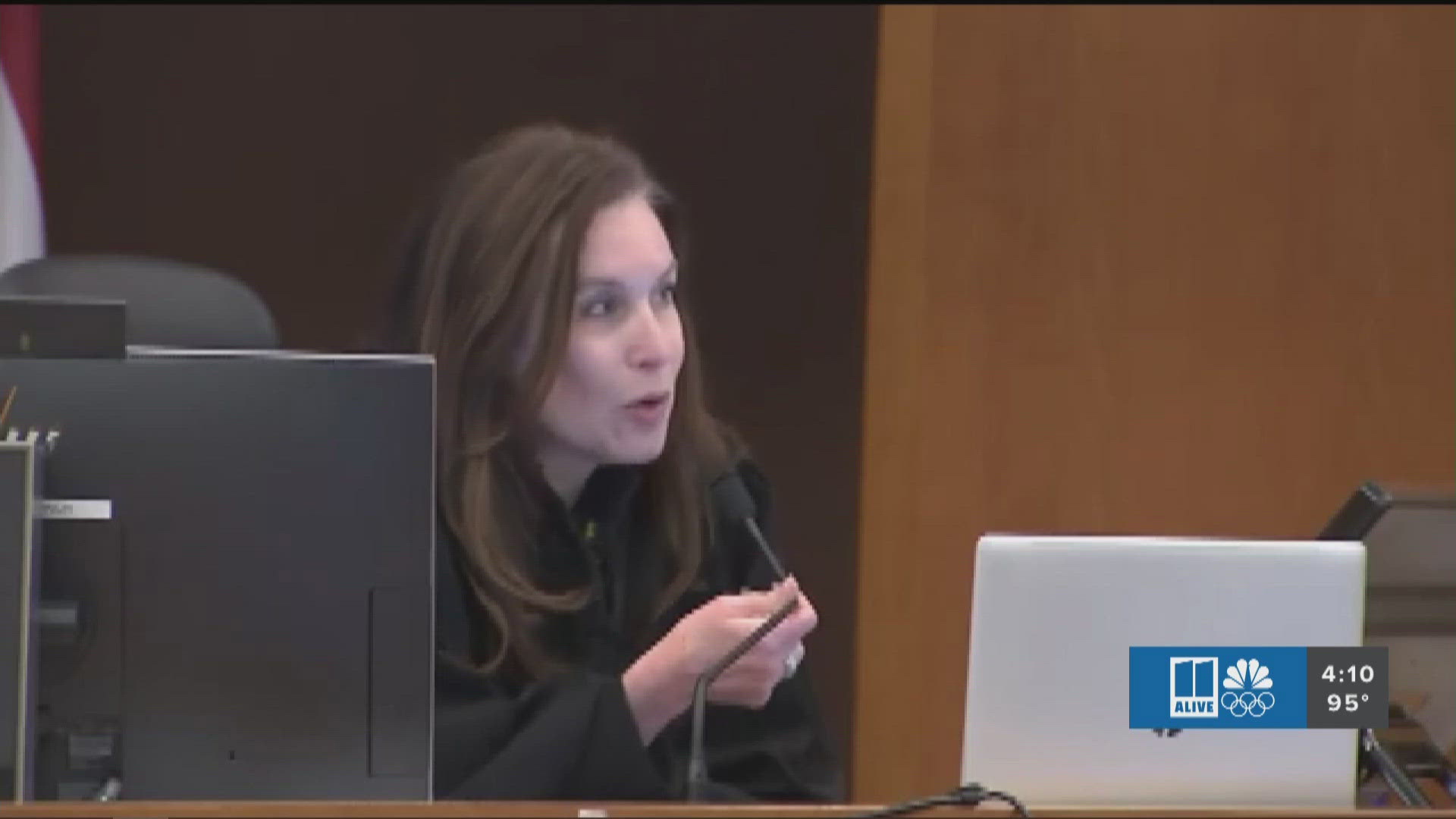ATLANTA — The RICO trial against Atlanta rapper Young Thug and several other co-defendants will continue after the judge denied a request for a mistrial from defense attorney Doug Weinstein, who represents Deamonte Kendrick, aka Yak Gotti. The ruling comes as jurors are expected to return to the courtroom Monday following a lengthy hiatus.
Friday, Fulton County Superior Court Judge Paige Reese Whitaker ruled that the trial will be allowed to proceed, but also condemned the prosecution for failing to share crucial evidence, or Brady material, with the defense. As a result, she ordered prosecutors to watch a training video on Brady principles and upholding "other professional obligations." The training will be provided under her direction using a video from the Prosecuting Attorneys’ Council of Georgia.
Defense attorneys have repeatedly voiced concerns, claiming that prosecutors were intentionally withholding evidence that should have been shared before the trial began. The recent mistrial motion focused on a statement made by the prosecution’s key witness, Kenneth Copeland (aka Lil Woody), during a controversial private meeting held on June 10.
During the meeting, Copeland admitted, “I have never been truthful a day in my life,” a statement that defense attorneys only discovered after seeking the removal of the previous judge, Ural Glanville, from the case.
Judge Whitaker acknowledged that Copeland’s statement would have been crucial for the defense and criticized the prosecution for not disclosing this information. While she stated that the oversight was likely unintentional, and not done in bad faith, she emphasized the seriousness of the lapse.
"Copeland may have little credibility. He may speak in hyperbole. But the fact remains that for a defense attorney, this nugget by a key State’s witness is gold," Whitaker wrote.
The ruling comes at a critical moment in the proceedings as Copeland is expected to redo his entire testimony when the jury returns.
Weinstein criticized the decision to deny a mistrial, stating his intent to request a certificate of immediate review to the Georgia Court of Appeals.
The trial, which has been ongoing for nearly two years, is Georgia's longest trial in the state's history.
More on recent case developments
The case's initial judge, Ural Glanville, was removed after attorneys for Young Thug had argued that he should no longer oversee the case because of a June 10 proceeding known as an ex parte meeting that became the subject of deep contention in the trial.
In her order, Judge Rachel Krause -- who was assigned the recusal matter -- stated, "This Court has no doubt that Judge Glanville can and would continue presiding fairly over this matter if the recusal motions were denied, but the 'necessity of preserving the public's confidence in the judicial system' weighs in favor of excusing Judge Glanville from further handling of this case."
The controversial private meeting led to Young Thug's attorney Brian Steel being held in contempt and sentenced to a 20-day jail sentence, which was reversed after the state Supreme Court granted him bond.
Steel had been held in contempt for refusing to reveal his source for how he heard about the ex parte meeting.
Judge Glanville later released the transcript of the meeting with the witness, Kenneth Copeland, a.k.a. "Lil Woody."
Copeland was arrested on June 7 and held in contempt after refusing to testify on the stand as part of an immunity agreement. A few days later, in the judge's chambers, prosecutors shared an email sent to them by Copeland's attorney accusing them of making him a target by forcing him to testify. They also said his attorney was threatening to pull out of the case.
Prosecutors later told Copeland that if he still refused to take the stand, he could be in jail until every defendant had their cases decided. He did eventually testify.
Copeland had an attorney present for the meeting, but she was a stand-in for his usual lawyer, who was out of town. Steel insinuated that the court was committing "coercion" as no representation for his client was invited to the meeting.
The extraordinary turn in the case captivated legal observers.

